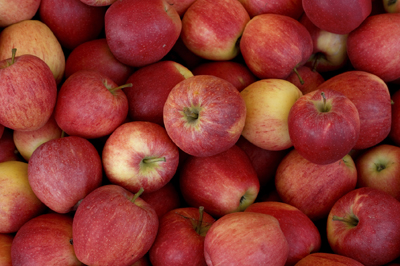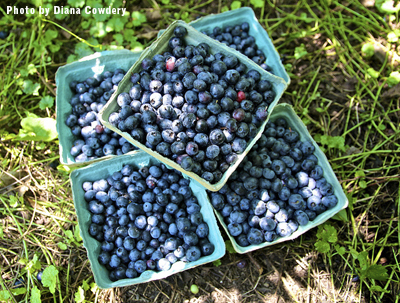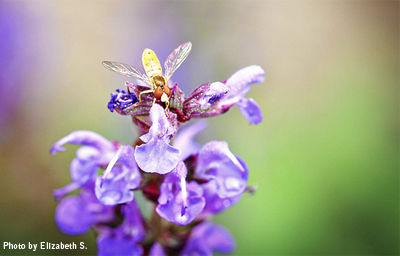Pollinators play a significant role in the production of more than 150 food crops in the United States, and studies have found that pollination enhances the yield and quality of a variety of important economic crops. The majority of this economic benefit is attributed to pollination by wild bees. Providing uncultivated land, or habitat, near field edges has shown to increase crop yield and profit. Piedmont farmers can benefit financially by providing adequate habitat for these little produce-friendly helpers.
Bees and other beneficial insects that nest in the ground prefer:
- Moderate level of disturbance
- Bare ground to sparsely vegetated areas
- Clumping native grasses
- Safe nesting sites away from heavily grazed, tilled or sprayed areas.
Below is a list of crops grown in the Piedmont that are dependent on or benefit from the ecological services of local pollinators. While some plants are totally dependent on pollinators to produce fruits, other plants that do not necessarily require cross-pollination may produce bigger and better-shaped fruits when pollinators contribute to their reproduction. This results in the farmer having bigger and more marketable fruits. It is in our best interest to support pollinator habitat, especially around farm lands, in order to get higher quality produce.
Top 10 Virginia Crops That Benefit From Pollinators:
- Alfalfa
- Apples
- Tomatoes
- Cotton
- Cucumbers
- Squash
- Watermelon
- Peanuts
- Snap Beans
- Soy Beans
Other Virginia Crops That Benefit From Pollinators:
- Blueberries
- Cranberry
- Huckleberry
- Caneberries
- Raspberries
- Blackberries
- Wineberries
- Persimmons
- Pitted fruits (peaches, plums, nectarines, apricots)
The Most Important Crop Pollinators in Virginia:
- Mason bees (orchard crops)
- Digger bees (berries, orchard crops)
- Squash bees (cucumbers, watermelon, squash)
- Halictid (Sweat) bees (Asters)
- Leafcutter bees (legumes)
- Bumble bees (generally all flowering plants)



